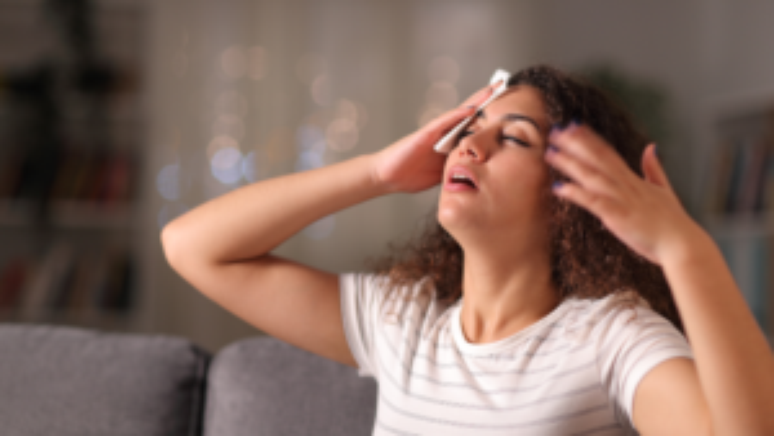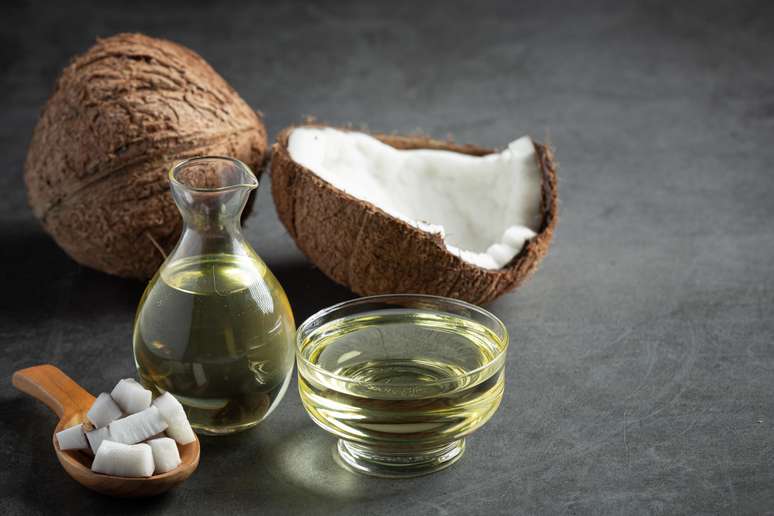The study shows that 4 out of 5 women suffer from strong odors, especially during perimenopause
Just as happens during puberty, hormonal changes during menopause can change or worsen the odor of armpits, feet and vagina, especially during perimenopause, when hot flashes (the famous hot flashes) and night sweats are more frequent and intense.
According to a study published in International Journal of Behavioral Medicine, symptoms are common in 75%-80% of women, four out of five suffer from strong odors, especially those who remain in perimenopause for two years or more.
The causes of bad odor in menopause
According to Carlos Moraes, gynecologist and obstetrician of Santa Casa/SP, doctor of the Albert Einstein Hospital and member of FEBRASGO; Perimenopause is characterized by a gradual decline in estrogen, the main female hormone.
The gynecologist explains that this decline begins to deregulate a series of organic functions in women, including the sweat glands (which produce sweat) and the hypothalamus, the region of the brain that controls body temperature.
“When the body gets hotter, especially in summer, sweating increases in the body’s natural attempt to balance and maintain physical temperature. However, along with excessive sweating (bromhidrosis) comes more intense body odor. The substances released normally do not have odor, but in contact with the colonies of bacteria on the skin they can cause an unpleasant odor”, says Carlos Moraes.
Another point, according to him, is the pH of the vagina. Normally acidic, remaining between 3.8 and 4.5, it can change with a decline in estrogen and progesterone levels. “This imbalances the vaginal microbiota and its beneficial bacteria (lactobacilli), promoting the growth of harmful bacteria and, consequently, vaginal odor.”
“Additionally, an imbalance in sweat glands can increase the production of sebum, an oily substance found in the skin. This change, combined with other symptoms such as hot flashes and night sweats, can actually amplify the problem of body odor,” adds Claudia Chang, PhD and postdoctoral fellow in Endocrinology and Metabolism at USP and member of the Brazilian Society of Endocrinology and Metabolism (SBEM)
How to eliminate odors
While the scenario seems scary, there are solutions to address the problem, ranging from hormone replacement therapy (HRT) to lifestyle modifications. Check out some tips below:
Discover hormone replacement: As a first-line approach, estrogen replacement can help regulate sweat and sebum production in the body. “It is worth remembering that not all women are indicated for hormone replacement therapy. Hence the importance of consulting your doctor to evaluate this possibility”, warns Claudia Chang.
Take care of general hygiene: It is essential to promote thorough skin hygiene, especially of the hands, feet and armpits. “These regions have more sweat glands and, naturally, sweating is more intense. The idea is to limit the proliferation of microorganisms. Therefore wash these parts of the body more frequently, preferably with antiseptic and antibacterial soap”, emphasizes Carlos Moraes.
Pay attention to intimate hygiene: the gynecologist also says that vaginal douching should be avoided without the doctor’s advice. “The internal region of the vagina is self-cleaning. It produces a secretion that helps eliminate germs and bacteria. Therefore, using showers can interfere with the natural pH and eliminate beneficial bacteria, creating the risk of infections, such as those caused by fungi “.
According to him, the external part of the vagina (where the vulva, labia majora and labia minora are located) can be cleaned with warm water and soap, preferably liquid, neutral and unscented. “If you want to diversify, a good option is to use vaginal moisturizers. Many contain ingredients such as vitamin E, vitamin C and collagen proteins. But consult your doctor before using these products, so he can recommend the best one for you” , underlines Carlos Moraes.
©AntonioGuillem from Getty Images via Canva.com
Antiperspirant/antibacterial: use antiperspirant deodorants and, if necessary, the doctor can prescribe products with a bactericidal, fungicidal and antifungal action. They contain higher concentrations of active ingredients than over-the-counter options and can be applied to various parts of the body to control excessive sweating and associated odor.
“If used in the evening, before going to sleep, on clean, dry skin, its action is enhanced. This is because the sweat glands are less active, which allows the active ingredients of the product to settle better and to more effectively inhibit the perspiration”, explains Claudia Chang.
Bet on appropriate clothes: wear light and comfortable clothing that is not constricting and does not damage blood circulation. Choose cotton clothes, rather than synthetic ones, as they are less warm, especially compared to underwear; and always wash lingerie separately from other items, using more delicate products. Also wear open shoes or shoes that absorb sweat, allowing your skin to breathe during hot days.
Botox for specific cases: according to Luís Maatz, plastic surgeon, specialist in General Surgery and Plastic Surgery at the Hospital das Clínicas of the USP Faculty of Medicine and member of the Brazilian Society of Plastic Surgery (SBCP); Botox (botulinum toxin) is an alternative for extreme cases.
“After the use of a topical anesthetic, the application of Botox, through injections, reduces the action of the sweat glands by blocking neurotransmission. The duration of its effects varies from eight to ten months and, in some cases, can even exceed one year The application is practically painless and the effect begins to be noticed around five days after the procedure”, explains Maatz.
Changes in diet: adopt a diet rich in fruit, vegetables and whole grains, as well as fibre, which helps eliminate accumulated toxins. “Also avoid consuming spicy foods, alcohol and caffeine, as these substances make the body sweat more. Also, focus on foods that are a source of antioxidants, such as vitamins E, C, as well as omega 3 and 6,” he says . Claudia Chang.
Practical exercises: While it may seem counterintuitive, exercise can help regulate body temperature and reduce excessive sweating and body odor over time. Plus, it’s an excellent stress reliever.
“Do not hesitate to ask for medical help. The specialist will seek the most appropriate approach to your individual needs and circumstances, ensuring a better quality of life in all stages of menopause”, concludes Carlos Moraes.
Source: Terra
Ben Stock is a lifestyle journalist and author at Gossipify. He writes about topics such as health, wellness, travel, food and home decor. He provides practical advice and inspiration to improve well-being, keeps readers up to date with latest lifestyle news and trends, known for his engaging writing style, in-depth analysis and unique perspectives.





-ubrgialfr7sh.jpg)


